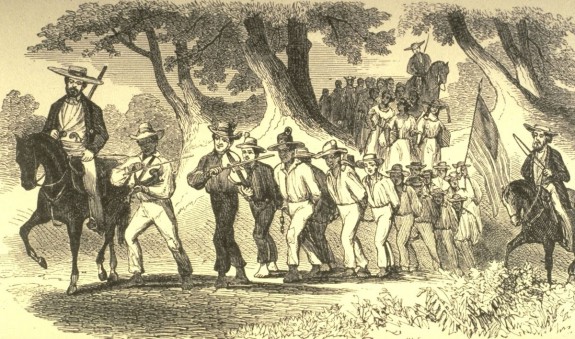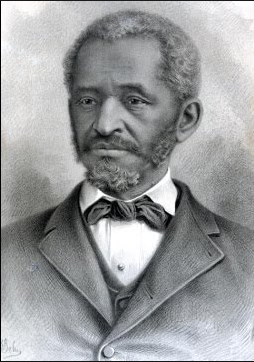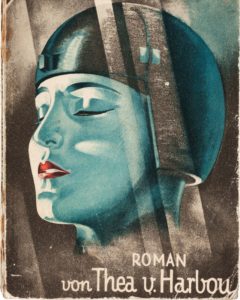Here’s something you won’t read about in the US history books. The first legal slave owner in America was black and he owned white slaves.
 Anthony Johnson (BC 1600 – 1670) was an Angolan who achieved freedom in the early 17th century Colony of Virginia.
Anthony Johnson (BC 1600 – 1670) was an Angolan who achieved freedom in the early 17th century Colony of Virginia.
Johnson was captured in his native Angola by an enemy tribe and sold to Arab (Muslim) slave traders. He was eventually sold as an indentured servant to a merchant working for the Virginia Company.
Sometime after 1635, Antonio and Mary gained their freedom from indenture. Antonio changed his name to Anthony Johnson.
In 1651 Anthony Johnson owned 250 acres, and the services of four white and one black indentured servants. The black indentured servant John Casor (Casar, Cazarao and Corsala) demanded that Johnson release him after his seven years of indenture.

Anthony Johnson
In March of 1654, according to Delmarva Settlers, Anthony’s servant, a man named John Casar requested that Johnson release him from his indenture because it had long expired past the usual seven years. Johnson replied that he knew of no indenture and that Casar was to be his servant for life. Anthony Johnson’s neighbors, George and Robert Parker, stated that they knew of another indenture for the said Casar to a planter on the other side of the bay. They continued to threaten Johnson with the loss of the servant’s cattle if he were to deny him his freedom. Johnson, with the influence from his family, released the servant, and even went to see that John Casar received his freedom dues. Freedom dues are materials and supplies given to the freed person in order for them to start their new lives with the necessary materials. In the case of John Casar, clothing and corn.[110] But after careful reflection, Johnson was certain that Casar was his servant for life; a slave. Johnson then sued the Parker brothers for unlawfully taking his property from him, and since there were no other indentures for John Casar, he was returned to the Johnsons.
The courts ruled in favor of Anthony Johnson and declared John Casor his property in 1655. Casor became the first person of African descent in Britain’s Thirteen Colonies to be declared as a slave for life as the result of Johnson’s civil suit.
In the case of Johnson v. Parker, the court of Northampton County upheld Johnson’s right to hold Casor as a slave, saying in its ruling of 8 March 1655:
“This daye Anthony Johnson negro made his complaint to the court against mr. Robert Parker and declared that hee deteyneth his servant John Casor negro under the pretence that said negro was a free man. The court seriously consideringe and maturely weighing the premisses, doe fynde that the saide Mr. Robert Parker most unjustly keepeth the said Negro from Anthony Johnson his master … It is therefore the Judgement of the Court and ordered That the said John Casor Negro forthwith returne unto the service of the said master Anthony Johnson, And that Mr. Robert Parker make payment of all charges in the suit.”
In a 1916 article, John H. Russell wrote, “Indeed no earlier record, to our knowledge, has been found of judicial support given to slavery in Virginia except as a punishment for a crime.”
It’s not clear if Anthony Johnson also kept his white indentured servants as slaves.
An Opposing View ~ Not so Fast…
Written by Jim Hoft and published by the Gateway Pundit ~ May 5, 2017.
 FAIR USE NOTICE: This site contains copyrighted material the use of which has not always been specifically authorized by the copyright owner. We are making such material available in our efforts to advance understanding of environmental, political, human rights, economic, democracy, scientific, and social justice issues, etc. We believe this constitutes a ‘fair use’ of any such copyrighted material as provided for in section 107 of the US Copyright Law. In accordance with Title 17 U. S. C. Section 107, the material on this site is distributed without profit to those who have expressed a prior interest in receiving the included information for research and educational purposes. For more information go to: http://www.law.cornell.edu/uscode/17/107.shtml
FAIR USE NOTICE: This site contains copyrighted material the use of which has not always been specifically authorized by the copyright owner. We are making such material available in our efforts to advance understanding of environmental, political, human rights, economic, democracy, scientific, and social justice issues, etc. We believe this constitutes a ‘fair use’ of any such copyrighted material as provided for in section 107 of the US Copyright Law. In accordance with Title 17 U. S. C. Section 107, the material on this site is distributed without profit to those who have expressed a prior interest in receiving the included information for research and educational purposes. For more information go to: http://www.law.cornell.edu/uscode/17/107.shtml
